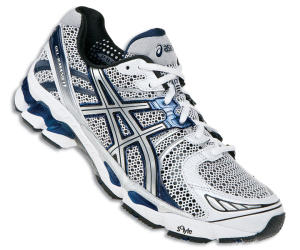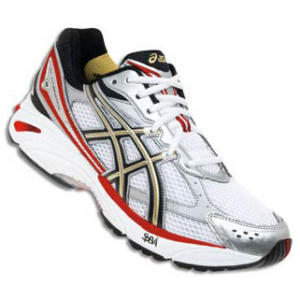
It's easy to confuse the Gel Kayano series wth the Gel 3000 series. A quick glance at the Gel Kayano 17 and you won't see (other than color) much difference between it and the new Gel 3020.
But differences there are. You need to take a closer look to fully understand why Asics is putting shoes that appear so similar together in the market.
Both shoes are made for over-pronators and would sit somewhere between the stability and motion control categories, but, each is made for runners of a specific sort of footfall. The Gel Kayano 17 is made for a runner who pronates almost immediately after the heel strike and then rolls—supported by the shoe—to a more neutral push-off.
The Gel 3020 is made for a runner type that doesn’t only pronate in the rear and midfoot but continues his pronation. This type of runner pronates almost completely through the gait cycle—all the way up to the ball of the foot. That’s why the Gel 3020 is made with what Asics calls its "Dynamic Forefoot Cradle."
This Cradle is an extra layer of supportive material that starts in the medial side of the heel and continues to the forefoot. This layer is placed between Asics' Duomax dual density medial post and the upper of the shoe. The shoe feels stiffer feeling than the Gel Kayano, and is, as a result of its increased medial stability.
Asics also widened the midsole/outsole combo. Its base is 2 mm wider than the Asics Gel Kayano. This doesn’t seem that much, but it is in terms of added stability.
The Gel Kayano is it excellent mix of cushioning and stability. The large rear gel unit in the serves in two ways: as a crashpad to absorb the first impact of the heel strike; and because it slows the movement of pronation due to this absorbing effect. The same under the forefoot. Large Gel units give excellent cushioning in a shoe this stable.
In comparison to the Gel Kayano, then, the Gel 3020 feels a little stiffer. But for those runners who need the extra support this is a better shoe than the Gel Kayano. This, even thought the 3020, at 12.3oz, is very slightly lighter than the Kayano.

[Editor’s note: Our capable editor-at-large for footwear Jeroen van Geelen owns Total Running, one of the more important running and triathlon retail establishments in The Netherlands.]


